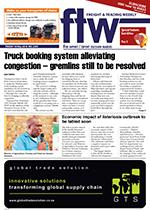Last week’s approval by cabinet of the Tripartite Free Trade Area (TFTA) agreement is a positive step in the right direction, but until it has been ratified by Parliament, the approval means nothing.
That’s according to Africa House market access and strategy director Duncan Bonnett who told FTW that the TFTA – a free trade area proposed between the Common Market for Eastern and Southern Africa (Comesa), the East African Community (EAC), and the Southern African Development Community (SADC) – would give South Africa improved access to the East African market, which the country had traditionally struggled to penetrate from a cost perspective.
According to communications minister Nomvula Mokonyane, the TFTA is an important initiative in accelerating regional integration efforts.
Department of Trade and Industry (dti) spokesperson, Sidwell Medupe, told FTW that South Africa had signed the Sharm El Sheikh declaration, along with 23 other African countries, in 2015 which had launched the TFTA. It had however not signed the agreement itself as a legal process was required to be followed before doing so.
Bonnett said that Parliament did not have a good track record when it came to approving bills like this. “There are a lot of bilateral bills currently sitting in Parliament that have not been approved as yet.”
He also noted that the benefits of the TFTA would depend largely on the countries who ratified the agreement, but said that it was likely that agreement would be pushed through by the larger economies in the regions.
“The Kenyan business community is especially aggressive and keen to access the southern African market,” Bonnett told FTW. “They’re already moving a lot into Zambia, through Tanzania, and are looking to move further down into Mozambique and South Africa.”
Once the TFTA is implemented – and it requires a minimum of 14 countries to ratify the agreement in order for it to enter into force – the countries who have signed it must then follow the schedule negotiated under the TFTA to decrease or eliminate tariffs.
Under World Trade Organisation rules, free trade agreements require a substantial amount of tariff reductions – around 80% – essentially liberalising trade between the regions. There will however be clauses in place to protect sensitive products, such as those from an industry still in its infancy in the country.
According to Bonnett, the most difficult challenge with regard to the TFTA will be ensuring compliance with the rules or standards put in place by the agreement.
“While I hope that countries will abide by the terms of the free trade agreement, there have always been cases of countries ignoring standard trade protocols – Zimbabwe, for example,” he added. “However, these are usually the exceptions and not the rule.”
Although ensuring compliance is not easy and is relatively expensive, Bonnett said that collaboration between the private sector and governments was an easy way to ensure a relatively high level of compliance.
“When the private sector sees any rules of the TFTA being broken, they need to take these issues to their governments,” he said. “South Africa’s private sector is already very aggressive in this regard, with many applications being taken to the WTO for anti-dumping or safeguard investigations.”
INSERT
80%
The tariff reduction required by the WTO for free trade agreements.

